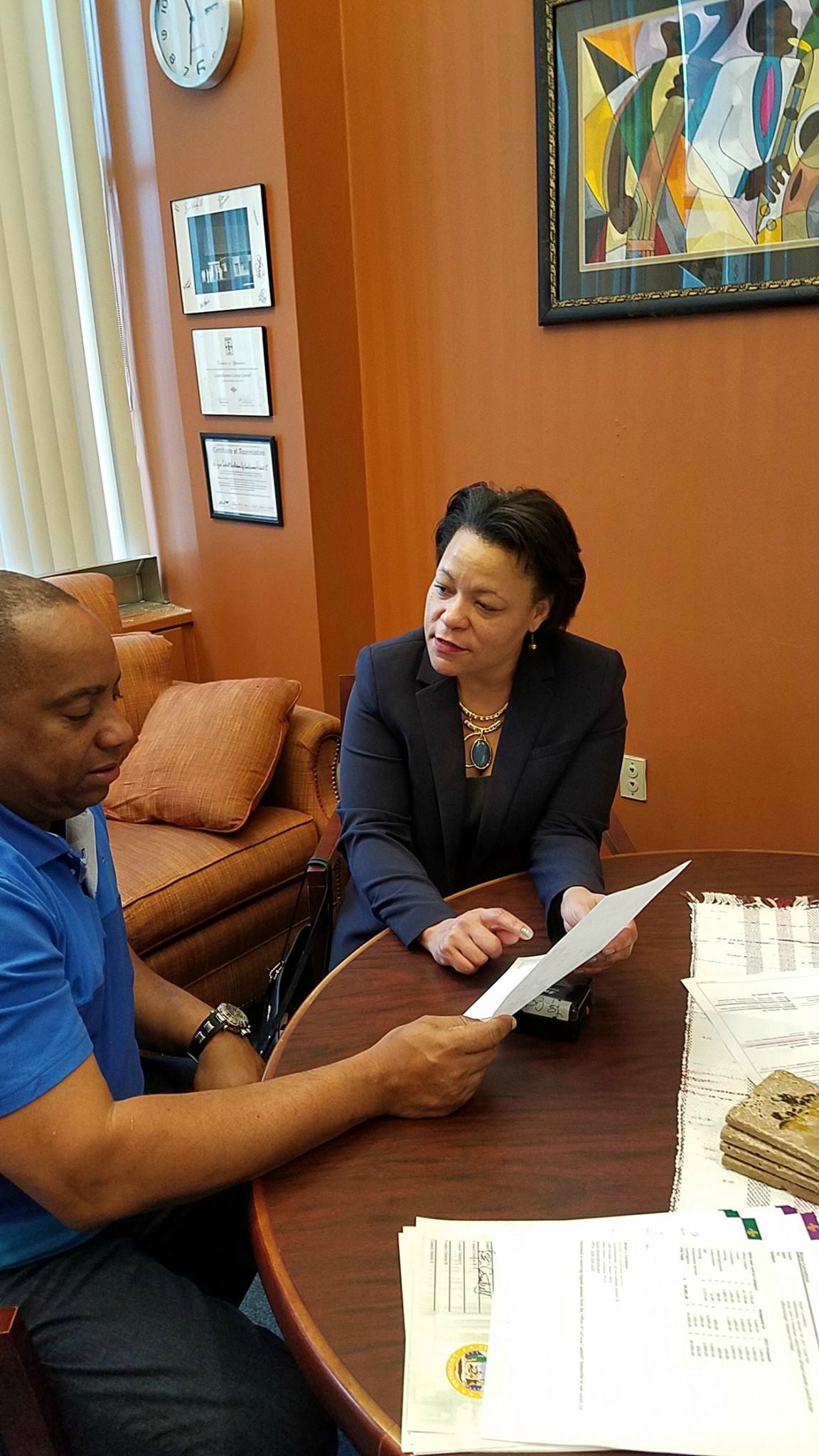
“Almost 300 years, my friends – and New Orleans, we’re still making history,” LaToya Cantrell declared to a crowd of supporters during her victory speech in the mayor’s race in November. This week, Cantrell was officially sworn in as New Orleans’ first female mayor in the midst of the city’s tricentennial celebration. While this is a significant milestone for the city itself, Cantrell’s election was part of a wave of Black women who, undeterred by the dysfunction in Washington, are exercising their political power in cities across the country. This creates an important opportunity to shine a light on the concerns of residents who look like these rising leaders.
Last year, some commentators declared 2017 “the year of the Black woman mayor” in response to the number of Black women on ballots to lead American cities. These races resulted in historic wins such as Cantrell’s race, the election of Vi Lyles as the first Black female Mayor in Charlotte, North Carolina, and excitement in Atlanta over the simple joy of saying, “we got a mayor named Keisha,” when discussing the newly appointed Keisha Lance Bottoms. In Minneapolis, Andrea Jenkins also made history, becoming the first openly transgender Black woman elected to a major city council. On top of this, a record number of Black women voters from Birmingham to Montgomery to Mobile turned out to send Doug Jones (D-AL) to the U.S. Senate, anointing Black women the moral conscience of the country.
“Black women have long been on the forefront of change and progress in this country,” explained Representative Bonnie Watson Coleman (D-NJ), co-chair of the Congressional Caucus on Black Women and Girls, following the Alabama election. “Sadly, we are so often left on the sidelines of critical discussions and policymaking that disparately impacts us and the communities we support.” It is not enough to give credit to the political power of Black women when Black women experience some of the worst economic and health disparities in our country.
On average, Black women make 67 cents for every dollar paid to white men, and nearly one out of three Black women are employed in low wage jobs, which often lack benefits such as paid sick days. Black women and their families disproportionately live in high poverty communities and are more likely to face eviction, trapping them in a cycle of instability and poverty. In addition, Black women experience higher rates of hypertension, diabetes, and are up to four times as likely as white women to die from pregnancy or childbirth-related causes.
Electing Back women to political office is an important step, but to truly support Black women, cities need to transform the policies and systems that have long perpetuated such inequality. Given the current momentum and political influence Black women have in cities, now is the time to champion a policy agenda that ensures cities work for Black women. And there are a number of policies local leaders can pass this year.
First, local leaders need to ensure Black women have access to high quality, affordable housing and prevent evictions. For renters facing eviction, having legal representation decreases the chances of eviction from 90 percent to about 50 percent, enabling residents to stay in their homes and avoid homelessness. New York recently became the first city in the nation to provide legal assistance to all low-income tenants facing eviction.
In addition, cities can also transform low-wage work into good jobs by setting high standards for wages and benefits. Also, while Black women have high rates of entrepreneurship, they often face social and financial barriers to landing city contracts, which amount to millions of dollars spent on goods and services each year. Ensuring cities reach out to these businesses is particularly important as businesses owned by people of color are more likely to hire other people of color than white firms.
Lastly, local leaders must prioritize the health and safety of Black women by ensuring all neighborhoods have access to health services, healthy food, and green spaces that promote active lifestyles.
This is just a start. As the PolicyLink All-In Cities Initiative lays out, there are dozens of policies that will help improve cities for Black women – from strengthening the cradle-to-career pipeline to ensuring local law enforcement protects, rather than targets, Black families. And while local leaders have a responsibility to all city residents, equity is not a zero-sum game. Intentional investments in the most marginalized communities are shown to improve the lives of all struggling people as well as local economies.
“After 300 years, don’t you think it’s about time [that] a woman was in charge?” Cantrell asked during her inauguration speech this week. “You did that. And don’t for one minute think that you didn’t do it on purpose. It was intentional. It was intentional, and I like that… Being intentional is absolutely key to what our new administration is going to be all about.”
It is time for leaders in all cities to be intentional about their work, and that includes focusing on the needs of Black women.





